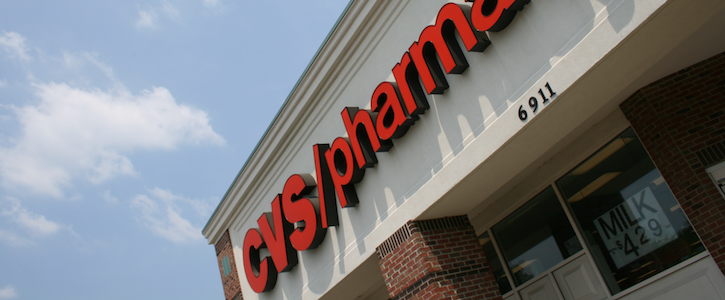CVS Expects Aetna Deal to Close Before Thanksgiving
In its third-quarter earnings announcement, CVS Health said it has secured most of the necessary state insurance department approvals.

Photo has been altered. Courtesy of Ildar Sagdejev (Specious).
CVS Health expects its acquisition of health insurance giant Aetna to close before Thanksgiving, as the entities have secured approvals from most of the state regulators overseeing the deal, according to CVS’s third-quarter earnings report.
The $69 billion transaction cleared a major hurdle last month when the U.S. Department of Justice approved CVS Health’s purchase of Aetna with conditions, in a settlement agreement that regulators said eliminated any lingering antitrust concerns, despite objections from within healthcare.
But CVS and Aetna are still busy locking down approvals for change-in-control filings that were filed in 28 state insurance departments back in January. So far, CVS has secured 23 approvals and is “well down the line with the remaining five” — progress that led the company to predict it’d close the deal in the next couple of weeks, a timeframe that’s in line with longstanding expectations.
>> READ: AMA Says CVS-Aetna Merger Will Hurt Patients
“As we approach the closing of our transformative acquisition of Aetna, our integration teams are making great progress to assure that once final approvals are obtained, we can begin to execute on our integration plans,” Larry Merlo, CVS Health president and CEO, said in a statement.
The move is indeed considered transformative by many healthcare observers. The Aetna acquisition is set to further CVS Health’s reach in the industry, spanning everything from the pharmacy and the clinic to health insurance. That comprehensive approach has excited investors and concerned other healthcare providers.
The arrangement also caused antitrust anxieties, prodding government regulators to require the sale of Aetna’s standalone Medicare Part D prescription drug plans. Aetna struck an agreement with a subsidiary of WellCare Health Plans to sell that asset, which consists of roughly 2.2 million members. But that deal won’t close until CVS Health and Aetna finalize their transaction.
In the quarterly earnings report, CVS Health noted that financing related to its acquisition of Aetna contributed to a $163 million decrease in pre-tax income.
Still, officials are confident that the merger will benefit CVS Health in the long term. The company, however, acknowledged several risk factors of the deal, including the timing to complete the acquisition, among others.
“While CVS and Aetna remain separate companies today, the performance of both companies highlights the very solid financial foundation on which we’ll build our revolutionary new model that will transform the healthcare experience for consumers and, in the process, deliver substantial value for our shareholders,” Merlo said.
Although the acquisition is slated to become official this month, it may well take much longer for healthcare providers and experts to determine whether the CVS-Aetna deal is a win for patients, shareholders, both or none.
Get the best insights in healthcare analytics directly to your inbox.
Related
CVS’s Long March from Convenience Store to Healthcare Giant
American Antitrust Institute Argues Against CVS/Aetna and Cigna/Express Scripts Deals
What Do Mergers and Acquisitions Mean for Healthcare’s Digital Transformation?
Podcast: Adoption of Healthcare Tech in the Age of COVID-19 with Dr Kaveh Safavi
June 22nd 2021Kaveh Safavi, MD, JD, global health lead of Accenture Health, discusses how the pandemic influenced the speed at which healthcare organizations adopted new technologies and how this adoption is impacting patient care.